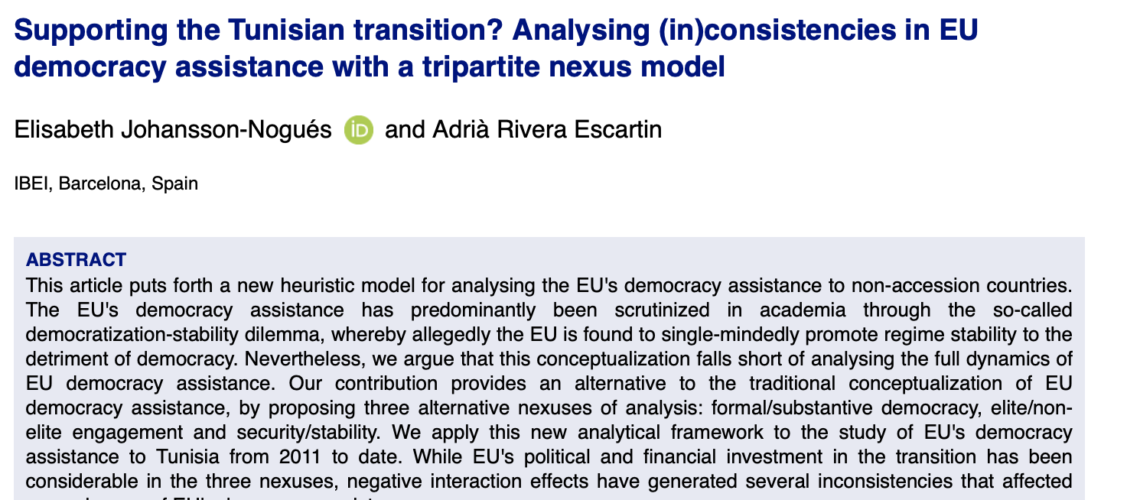VISIONS researchers from IBEI Elisabeth Johansson-Nogués and Adrià Rivera Escartin coauthored an article on the EU and the democratic transition in Tunisia. By using a tripartite nexus model, it analyses to what extend EU democracy assistance was (in)consistent in Tunisia. The article, published in the journal Democratization, is available open access here.
Abstract: This article puts forth a new heuristic model for analysing the EU’s democracy assistance to non-accession countries. The EU’s democracy assistance has predominantly been scrutinized in academia through the so-called democratization-stability dilemma, whereby allegedly the EU is found to single-mindedly promote regime stability to the detriment of democracy. Nevertheless, we argue that this conceptualization falls short of analysing the full dynamics of EU democracy assistance. Our contribution provides an alternative to the traditional conceptualization of EU democracy assistance, by proposing three alternative nexuses of analysis: formal/substantive democracy, elite/non-elite engagement and security/stability. We apply this new analytical framework to the study of EU’s democracy assistance to Tunisia from 2011 to date. While EU’s political and financial investment in the transition has been considerable in the three nexuses, negative interaction effects have generated several inconsistencies that affected several areas of EU’s democracy assistance.

